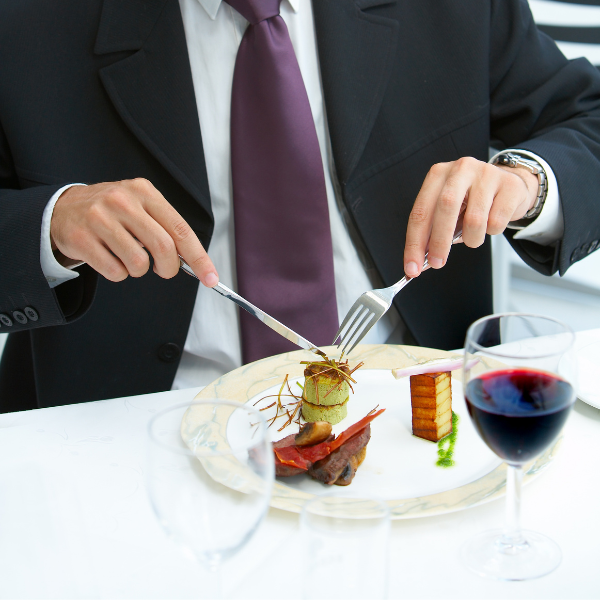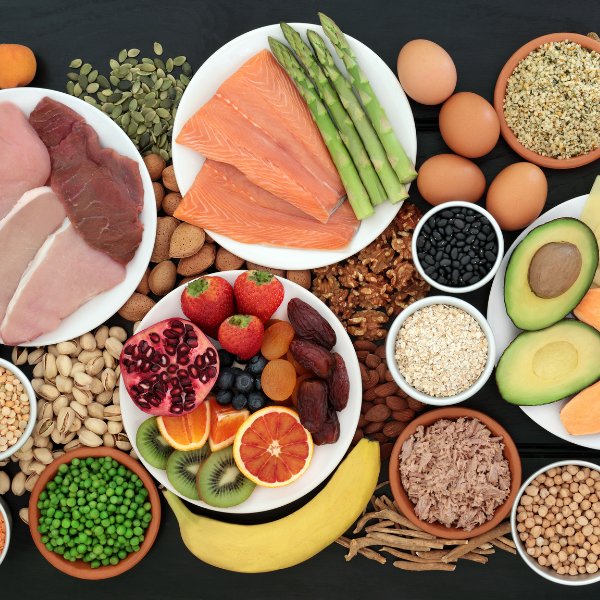As a server, you may encounter many stressful situations when tending to customers at a restaurant, bar, cafeteria, or other foodservice establishment. However, being a waiter is a very rewarding occupation because you are able to provide patrons with an unforgettable experience and meet interesting people every day. We’ve created this informative guide to provide you with a number of tips on how to be an excellent server and handle tough situations.
What Is A Server?
Before you can become a great waiter, the first question you need to ask yourself is, “what does a server do at a restaurant?” Understanding the responsibilities you have as a server is the first step to becoming a successful waiter. Although the tasks servers must complete vary between establishments, they are typically responsible for:
- Preparing tables
- Greeting customers when they enter establishments
- Presenting patrons with menus
- Writing down or memorizing guests’ food and drink orders
- Accurately serving orders to customers
- Understanding the menu and making food or drink suggestions to guests
- Engaging with patrons in a friendly manner
- Making sure guests are enjoying their meals
- Solving issues that occur
- Accurately preparing checks
- Collecting payments
- Collaborating with other waiters and kitchen staff
How Can I Become A Waiter?
You may be wondering how to become a waiter if you don’t have any experience in the food industry. While there aren’t any educational requirements you need to meet to become a server, every establishment has age requirements you must satisfy. Some restaurants will hire you if you are 16 years of age. However, other establishments won’t consider you if you’re not old enough to serve alcoholic beverages in your county.
Additionally, there are many states like Illinois and Utah that require you to earn a food handling certificate before you can begin serving tables. While the requirements and process differ from state to state, you will likely have to complete a food safety course and pass an exam.
Furthermore, there are some states that have the local government make the decision on what documentation individuals need to serve food. This causes counties within the same state to have different regulations in place. For instance, in Arizona, La Paz County requires every person who handles or prepares food and equipment to obtain a county-issued food handler's card. However, individuals in Graham County are not required to get a certificate from the county to become a server. Instead, they follow the regulations the state has in place. Regardless of where you live, it’s important to understand the different requirements your county has before applying for jobs.
Tips To Being A Great Waiter

The great part about being a server is the ability to make a good amount of money in a short period of time. The key to doing that in this industry is by providing your customers with a memorable experience. We’ve provided you with a number of tips below to help you become a successful server.
Always Smile And Be Personable
If you’re having a bad day at work or aren’t feeling well, it’s important not to show your customers. Instead, you should always smile and be personable when serving patrons. By doing so, your bad day may get better, you’ll make your job more enjoyable, and your customers will leave the establishment happy. It can also lead to you creating relationships with customers which may lead to increased tips. You can be personable and authentic with guests by:
- Being positive
- Greeting them with a smile
- Getting to know them
- Writing “thank you” on their check
- Remembering their names
Learn The Menu
It’s critical to know everything that is on the menu if you want to be an outstanding server. You will encounter situations where you will serve patrons that are allergic to certain foods, such as eggs or nuts, and they will ask you questions about dishes to ensure they can eat them. By not knowing the menu, you may offer them something that has eggs or nuts and will end up facing the consequences.
It’s also crucial to learn the menu because you’ll have guests that’ll ask you for food or drink recommendations. For instance, if you have a customer that asks you, “which steak do you recommend?” you can suggest the t-bone steak and let them know it pairs perfectly with medium-bodied red wines. It’ll show customers that you’re knowledgeable which can lead to larger checks.
Double Check Orders
One of the easiest ways to provide patrons with a poor experience at your establishment is by serving them a rare steak instead of a well-done steak or pork instead of chicken. You also don’t want to waste your kitchen’s inventory and have guests wait another 15 minutes for a new dish. If you think you may have jotted down something incorrectly or forgotten what they said, go back to their table and kindly let them know that you want to make sure you have their order right. Most guests will appreciate that you are taking that extra step to ensure their orders are prepared properly.
Correct Mistakes
While we always aim to provide customers with a wonderful experience, mistakes are going to happen. As such, it’s important for you to handle them the right way. For example, if you forgot to bring a customer a refill of lemonade or their side of mashed potatoes, be sure to apologize and let them know that you are going to fix it. This shows them that you truly care and it may not negatively impact your tip.
Check On Guests When They Receive Their Dishes
Once you see guests have begun eating, walk over to their table and see how everything is. It’s important to make sure they have all the essentials they need to enjoy their delicious meals, such as condiments, napkins, utensils, or beverages.
What are some things not to do as a waiter?

Now that you know how to be a good server, it’s essential to understand what you shouldn’t do while working. The last thing you want to do is get in trouble by management or do something to negatively impact your tip. We’ve created a list to help you learn about the things you shouldn’t do while on the clock:
- Use your cell phone while out on the floor
- Ignore a table because it isn’t in your section
- Leave empty plates or glasses on tables
- Forget silverware
- Touch the top third of someone’s glass with your hand
- Put your hands all over the spout of a wine bottle
- Let customers enter the establishment without a greeting
- Remove a plate of food without asking
- Eat or drink in front of patrons
- Tell guests to leave a tip
- Curse in front of customers








